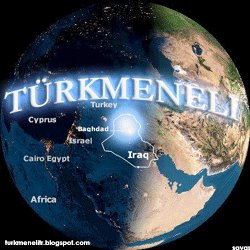By Martin Sieff
UPI Senior News Analyst
Published April 7, 2006
......... And in the north, largely overlooked, the Kurds supported and protected by U.S. power, have been forcibly exerted their own control over resentful Assyrian and Turkoman minority communities. The Kurd-Turkoman conflict, almost totally ignored in the U.S. media, is particularly significant because Turkey, a key U.S. ally and NATO member and traditionally hostile to Kurdish independence, feels strong ethnic loyalty to the Turkomans from the days of the old Ottoman Empire. As Chaim Kaufmann wrote in the New York Jewish newspaper the Forward Friday, "Not one but two full-scale communal conflicts are raging in Iraq. In the north of the country, the Kurds are fighting several other communities for the oil-rich Kirkuk Province. Further south, Sunnis and Shiites are struggling for control of a roughly 100-mile-deep band of mixed settlement that runs across central Iraq, including Baghdad." ............
other analyses:
Saturday, April 08, 2006
Monday, April 03, 2006
War in Iraq is a Continuation of the Past

by Tugrul Keskin
In his article, "The Last Exit From Iraq," Joel Rayburn argues that the US is not the first country who occupied Iraq and suggests that the US should take a lesson from the British experience. In the context of his analogy, unfortunately it is accurate information; however, he forgets to include a historical analysis of British colonialism at the beginning of this century and its relationship with the American occupation of Iraq. The American occupation of Iraq is a continuation of British colonialism and today is a reflection of the past. Iraq is an artificial state; it has an artificial national identity based on territoriality, as established under British imperialism. However, if we look at the other countries in the region, most of these countries are not different than Iraq. There is no difference between Iraq and Syria, Kuwait and Saudi Arabia, Jordan and Lebanon. The differences between these countries are very similar to differences between Georgia and South Carolina or New York and Washington DC. ....
Subscribe to:
Posts (Atom)
